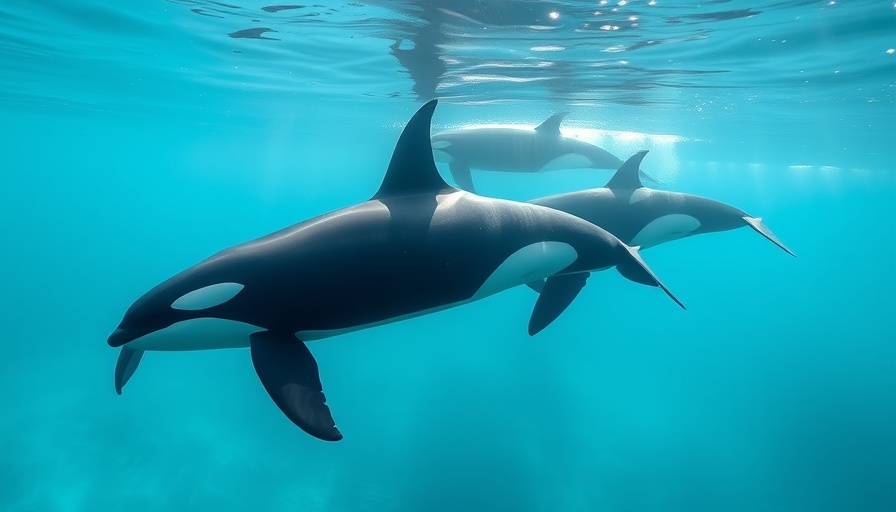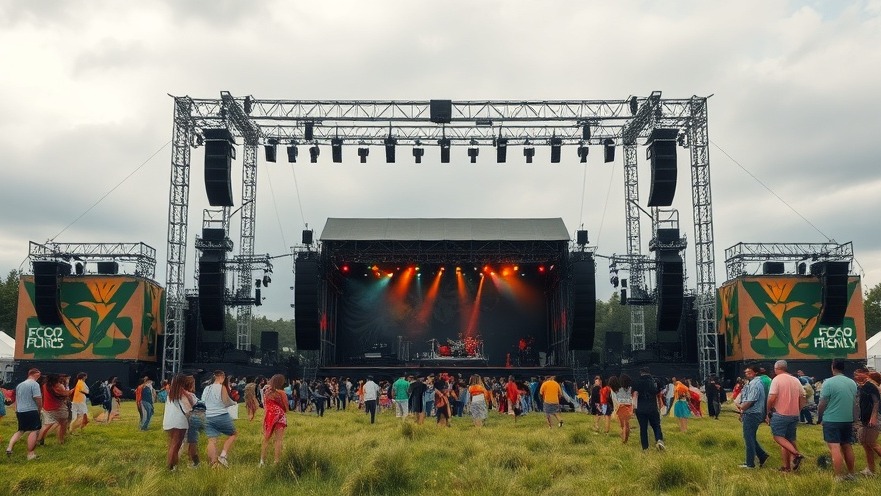
The Remarkable Intelligence of Southern Resident Orcas
In a groundbreaking observation, researchers have documented the first known instance of tool-making behavior in marine mammals. Southern resident orcas off the coast of Washington State have been seen grooming each other with strands of kelp, an action that not only highlights their intelligence but also emphasizes the depth of their social connections.
What Is Allokelping?
The behavior observed is termed allokelping, a unique ritual where orcas select kelp strands and use them to groom one another. This decision to use a natural object as a tool signifies advanced cognitive abilities typically associated with higher mammals. This kind of behavior showcases the interconnectedness of nature, as understanding orca social structures can provide insights into ecological well-being.
Importance of Social Bonds in Orcas
Orcas, primarily known for their complex social structures, use activities like 'allokelping' to reinforce bonds within their pods. The researchers noted that these sessions of grooming often involved familial pairs, particularly mothers with their offspring, indicating a nurturing aspect of their societal interactions. Such behavior plays a critical role in maintaining the intricate dynamics of their communities, essential for survival.
Historical Context and Its Significance
Understanding this newly identified behavior is not just important for marine biology but also crucial for conservation efforts. As climate change threatens habitats and food sources, recognizing the social structures of species like orcas can lead to more effective preservation initiatives. Furthermore, their environment’s health impacts the entire marine ecosystem, making orcas a critical species for monitoring ecological shifts.
Why This Discovery Matters for Environmental Awareness
The incident of orcas using kelp as tools is a call to action for climate awareness and conservation. As hotel and accommodation professionals increasingly seek eco-friendly practices, drawing inspiration from nature, such as the orca's sustainable behaviors, can help promote unique offerings that resonate with today’s eco-conscious travelers. Incorporating local biodiversity and marine conservation into hospitality experiences highlights the significance of every element within an ecosystem.
Bridging Hospitality and Environmental Conservation
For boutique hospitality professionals, the insights gained from observing orcas can inspire innovative approaches to sustainability in their businesses. Consider initiatives like fostering local ecosystems by implementing chaos gardening practices or promoting activities that raise awareness regarding marine life, such as guided tours that emphasize respect for natural habitats. By intertwining these interests, businesses can enhance guest experiences while actively contributing to conservation.
Future Implications for Marine Conservation
Looking forward, this discovery prompts questions about the broader implications for marine mammals and other wildlife. If orcas are capable of tool-making, what other hidden abilities might be lurking in the depths of the oceans? As we gain more ground-breaking insights into wildlife behaviors, we have a responsibility to advocate for environmental protection on all fronts—from reducing microplastics pollution to protecting vital marine habitats like coral reefs.
Joining the Commitment to Sustainability
In conclusion, the phenomenon of allokelping not only reveals a fascinating glimpse into the life of orcas but also serves as a reminder of the close ties between wildlife and environment. As professionals in the hospitality industry, we can take cues from these intelligent beings to create impactful eco-friendly practices. Let’s unite our efforts in fostering sustainable environments—a step that is already mirrored in nature itself. After all, when we nurture our surroundings, we offer our guests not just comfort, but a legacy of conservation.
 Add Row
Add Row  Add
Add 




Write A Comment